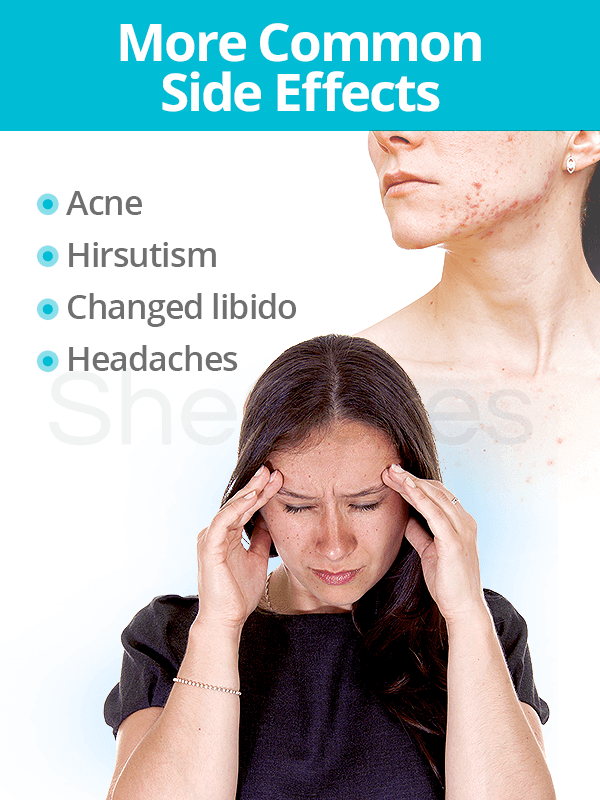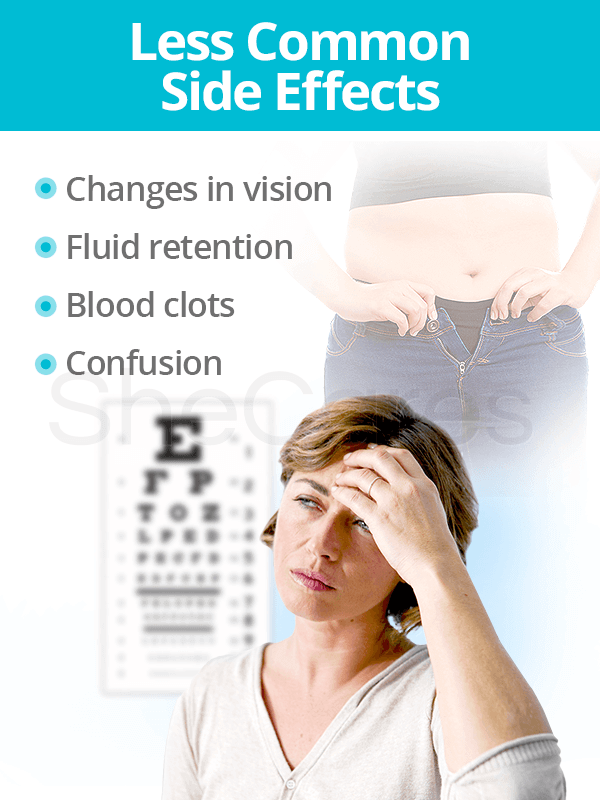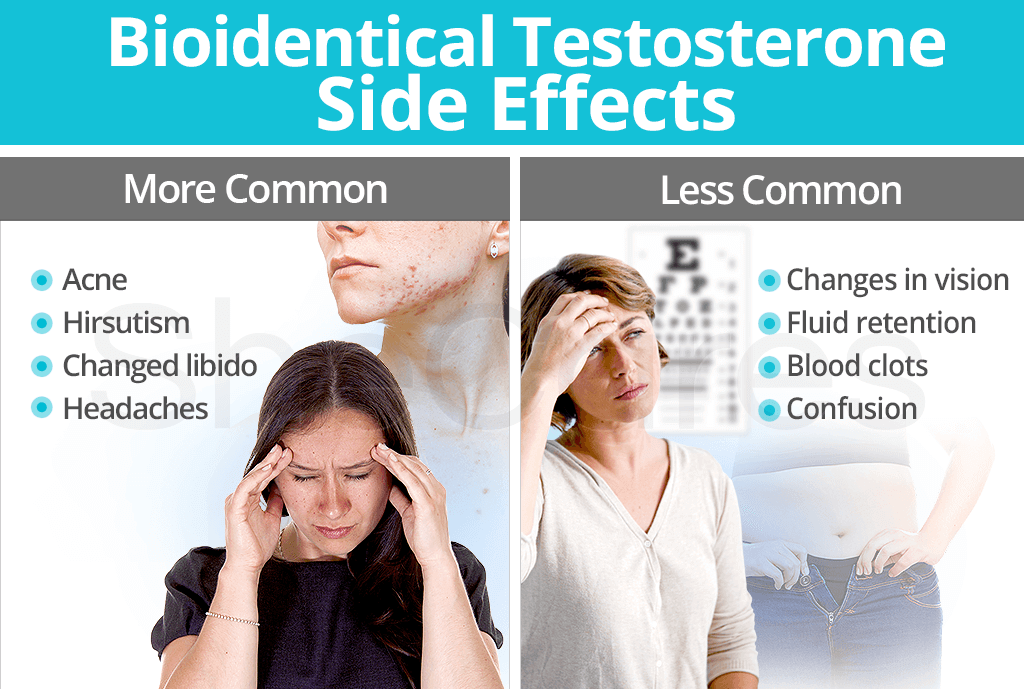While bioidentical testosterone may seem like a dream come true for women suffering from symptoms of sexual dysfunction, its use does not come without its own list of risks.
Continue reading to learn more about bioidentical testosterone side effects and drug interactions so that you can be one step closer to choosing the right treatment and living a hormonally balanced life.
More Common Bioidentical Testosterone Side Effects
While the major side effects of bioidentical testosterone are those related to masculinization, other most common ones may also include:

- Acne
- Deepening of the voice
- Hirsutism, or abnormal male-patterned hair growth
- Hair loss
- Changed libido
- Headaches
- Enlarged clitoris
- Allergic reactions
- Menstrual irregularities
- Lower HDL (“good”) cholesterol levels
- And more
At the first sign of adverse reactions, women should inform their doctors so that doses can be adjusted or medication discontinued.
Less Common Bioidentical Testosterone Side Effects

Likewise, the following is a list of less common yet more serious side effects that can occur when a woman undergoes bioidentical testosterone replacement therapy:
- Changes in vision
- Fluid retention
- Confusion
- Blood clots potentially leading to strokes and heart attacks
- Hypertension
- And more
If you suffer from any of these, seek medical assistance as soon as possible.
Potential Drug Interactions
Women on bioidentical testosterone therapy should be aware of any contraindications that might exist for other medications they might be taking.
Some drugs that have been found to interact with testosterone hormones include diabetes medicines, like insulin, or thyroid medications.
To avoid harmful reactions, always share with your doctor about any other medicines that you may currently be on, including non-prescription medications, nutritional supplements, and herbal products.
Now that you understand the implications involved with each common bioidentical hormones, continue on to the next section, which focuses on bioidentical hormones and menopause.
Sources
- Cleveland Clinic. (2014). Bioidentical Hormone. Retrieved May 13, 2019, from https://my.clevelandclinic.org/health/articles/15660-bioidentical-hormones
- Glaser, R. & Dimitrakakis, C. (2013). Testosterone therapy in women: Myths and misconceptions. Maturitas, 74(3), 230-234. doi: 10.1016/j.maturitas.2013.01.003
- Harvard Health Publishing. (2013). Testosterone therapy: Is it for women? Retrieved May 13, 2019, from https://www.health.harvard.edu/womens-health/testosterone-therapy-is-it-for-women
- Morley, J.E. & Perry, H.M. (2003). Androgens and Women at the Menopause and Beyond. The Journal of Gerontology: Series A, 58(5), M409-M416. doi: 10.1093/gerona/58.5.M409
